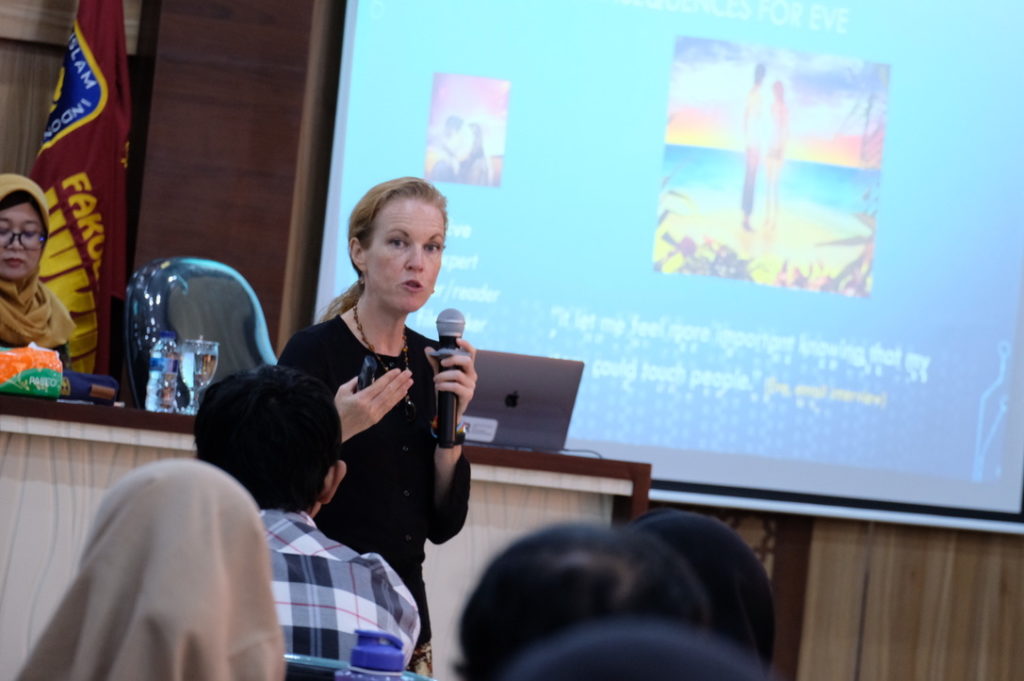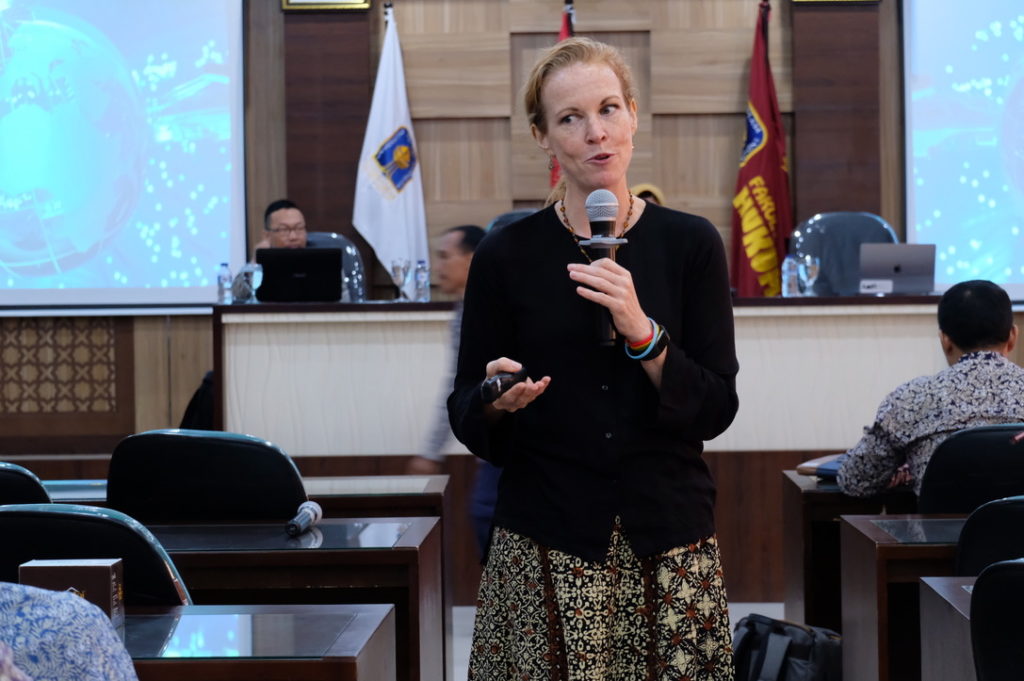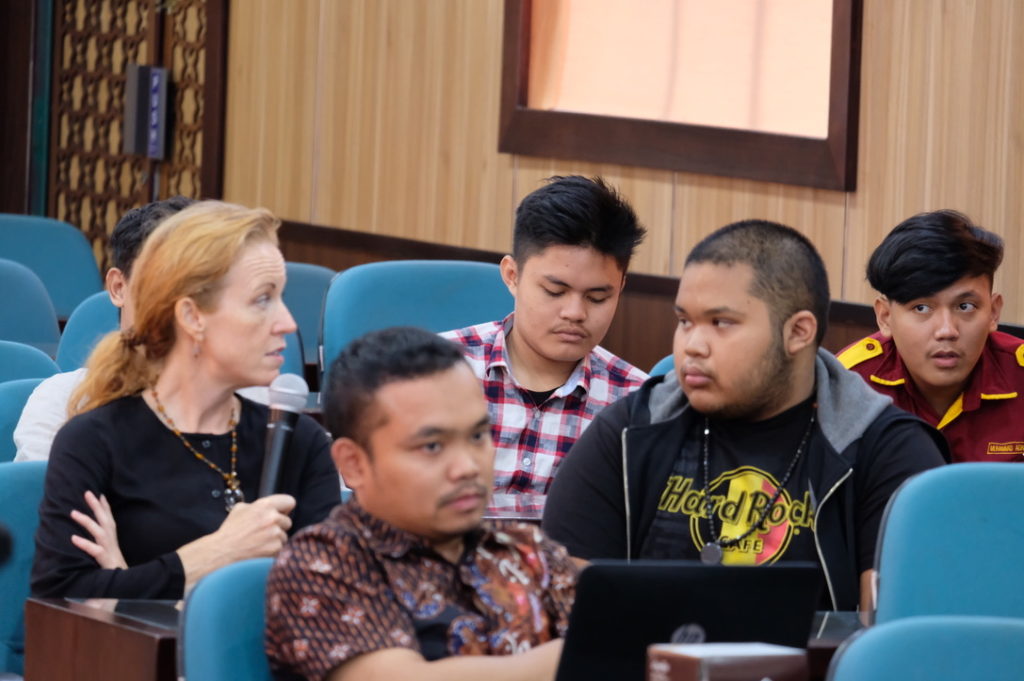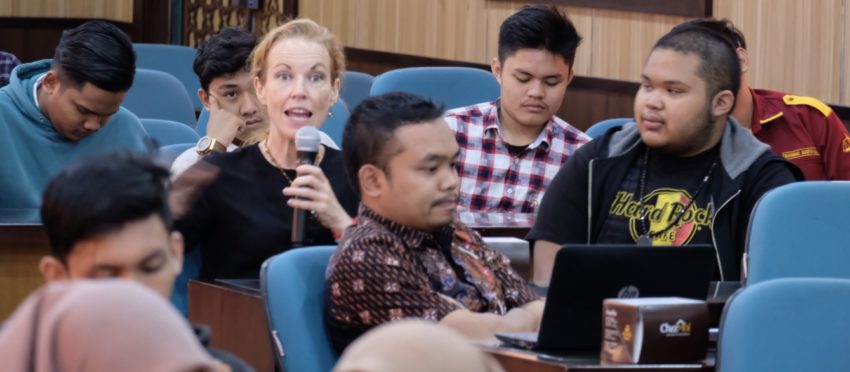
Since coming to Indonesia in September, I’ve been connecting with and learning from university lecturers and students, teachers and young people in elementary, junior high, and senior high school classrooms, fanfiction writers, pre-service teachers, policy academy instructors, concerned parents, literacy researchers and more – and when I tell them that I study young people’s digital literacies, Indonesians most often share their fears about technology. Rarely do they acknowledge the learning and creation potential of the devices they carry, until I prompt them to consider otherwise.

Everywhere I go, Indonesian educators at all levels express concerns about the “Era 4.0” and disruption caused by technology. They express fear about putting devices into children’s hands, exposing them to harmful content, addictive applications, and toxic or useless social media tools. And, we are already starting to see repeated worries about hoaxes emerge in the early review of our survey data as secondary students most often cite that as an example of what they like least about technology.
The message I share in the talks I’ve been giving at universities throughout Indonesia is more empowering and hopeful. I illustrate how young people in my research, and that of many others, harness technology’s potential to create new opportunities in their lives. I do some disrupting of my own, offering an alternative understanding to the common myth that their students are “digital natives” who do not need explicit instruction about how to tap into this potential. I share examples of educators making meaningful connections between students’ interest-driven digital practices and school curriculum mandates.
Drawing Inspiration from a Young Man in Yogyakarta
Sharing this message and continuing to conduct digital literacies research and offer professional learning for educators became even more important to me after a brave young man stood up to ask me a question at a recent talk. I was speaking to faculty and students in the International Program of the Faculty of Law at Universitas Islam Indonesia in Yogyakarta last week, delivering my evolving message to explain what I mean by digital literacies as social practices, and showing what it looks like in my own teaching back at the University of Rochester. During the question and answer session, after exchanges with four lecturers, I encouraged students to ask their questions, and one young man way in the back stood up and took the microphone. I knew this was going to be a very different exchange when he began by saying: “Miss, Indonesians are taught to follow… We don’t create, we just look and like. I don’t know how to do what you’re suggesting.” He went on to deliver an impassioned message of feeling unsure about his own identity as an “Indonesian boy who doesn’t know who I am or what that means.” He told me he was “not unique…there’s nothing special about me…nothing special about Indonesia.” As he got emotional, I too choked up. I knew I couldn’t stay up on the stage and answer him from such a distance. I stepped down and put myself right next to him to have a conversation that, though into microphones, was really about facilitating a human connection between the two of us. I applauded his courage and explained to him how valuable and unique he really was, and what his question meant to me as inspiration for the work that I’m called to do here in Indonesia.

After connecting with this young man and honoring his concerns, I turned to the audience with a message that the phones they carry everywhere they go and use to post selfies to Instagram, stream media content, chat on WhatsApp, and check the news – those phones give them amazing power to let the world know what’s happening here in this vast, diverse, and beautiful country. Those phones give them access to information. They can be used as tools to find and communicate with mentors, collaborators, friends, and allies. I encouraged them to reconsider their apps, particularly social media, as tools that allow them to create, edit, share, and publish in a variety of modes, using words, images, video, sound, and more to express themselves and produce important (counter)narratives that push back on other’s limited understanding of the people and culture of Indonesia. Those phones, and other internet-connected technologies, are powerful learning and creation tools.
There’s important work to be done here in Indonesia, and I am very interested in continuing to collaborate with researchers, teachers, students, and policy makers in the coming years to see how we might be able to tap into the potential that digital technologies have to create meaningful educational opportunities for Indonesians. I, like many other educators I speak with, am encouraged by the message that the new Minister of Education and Culture, Nadiem Makariem, delivered last month for Teacher’s Day. Though his speech was brief, it was well received for seeming to have a vision that might go a long way to addressing the concerns of the young man I met last week. I appreciated when he encouraged teachers to: “Invite classes to discuss, not just listen. Provide opportunities for students to teach in class…Find a talent in students who lack confidence.” I’m interested in seeing how his leadership might open doors for innovation in Indonesian educational contexts.
